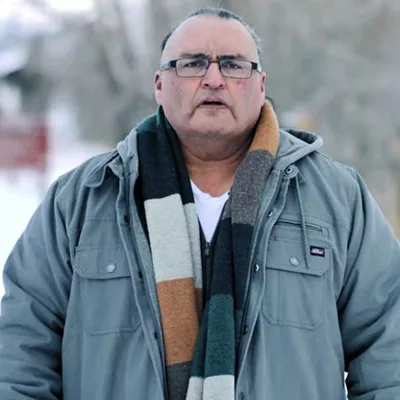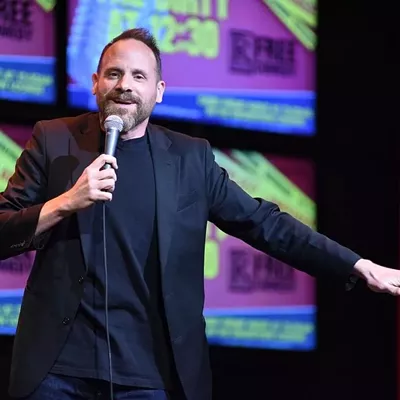Tucson's a long way from Harlem—and while our town has plenty of culture, it's not exactly exploding with African-American heritage. Sadly, Arizona didn't count Martin Luther King Jr. Day as a holiday until 1993, making us the second-to-last U.S. state to recognize one of history's most important black leaders.
This should make culture-loving Tucsonans all the more excited that this week, for the first time—and just in time for Martin Luther King Jr. Day—the phenomenal Harlem Gospel Choir will bring us a little piece of Harlem, and a lot of foot-stomping, hand-clapping gospel tradition.
The Harlem Gospel Choir was born on Martin Luther King Jr.'s birthday in 1986 thanks to Allen Bailey, a music promoter who grew up in Harlem. Since then, it has become one of the world's most famous gospel choirs, performing sold-out shows with artists like Diana Ross, Jimmy Cliff, Whoopi Goldberg, Bono, Lyle Lovett and even Jessica Simpson. The choir has sung for Nelson Mandela, Oprah Winfrey, Elton John and the current and past two popes, and has been extremely well-received on tours across the globe, from Australia to Bulgaria to China.
Once you hear the choir, you'll understand why it's so famous. Anna Bailey, the wife of Allen, has managed it for the past 10 years and holds the auditions for all new members—and she's very picky.
"Obviously, the vocals are phenomenal," says the choir's booking agent, Katie Morris. "Anna pulls singers from all over Harlem, but it's only the best of the best."
The choir not only sounds good—it also does good. It has performed at numerous charity functions for a wide variety of causes, from helping the homeless to supporting the victims of Hurricane Katrina. It has raised money for Doctors Without Borders, the NAACP, many children's charities and a group helping AIDS victims in Africa. The choir has even opened a spiritual retreat in the Poconos for Harlem kids. The group strives to use music and deeds toward Dr. King's goal of bringing people and nations together.
The choir's top-notch singing abilities and its do-unto-others attitude combine to make every one of its performances an incredible experience. Besides being fun and engaging—the choir encourages audience participation, and you'll know many of the songs—performances are intensely uplifting and spiritual, according to reviews from audience members worldwide.
"Our music is inspirational and healing, as well as being very entertaining," says Anna Bailey in an e-mail. "... The music and the energy is a constant source of strength for me."
Morris seconds that: "Their concerts are more of a complete experience than a spectator type of performance. Their joy and love for what they do is infectious. You feel like they transport you out of your seats—whether you're Christian or not."
The touring arm of the choir that will come to Tucson includes nine singers, two musicians and a tour leader, which allows other members of the 65-person choir to keep performing in Harlem churches and Manhattan's B.B. King Blues Club and Grill, where the choir draws people from all over New York every Sunday.
"The choir is unique and special, because it truly represents what is happening in Harlem's churches today—and has always done so," says Bailey.
Unfortunately, not everyone can go to New York to see the choir, Morris points out. "And unless you go to an African-American church, it's hard to hear live gospel music. So it's really neat that people can see the choir without leaving Tucson. It shows you a subset of American culture you might not otherwise experience."
Folks at the Fox Tucson Theatre are especially excited about the Harlem Gospel Choir show, which the theater is hosting in partnership with Tucson's Interfaith Community Services, and the sponsorship of Tucson-Southern Arizona Black Chamber of Commerce and the local chapter of the Gospel Music Workshop (which will also open for the choir).
"This is really an unusual performance for Tucson," says Fox executive director Craig Sumberg. "It's just not something that comes along regularly. ... We're going to make it a real celebration of traditional gospel music, particularly African-American gospel music. It's an event not to be missed."






